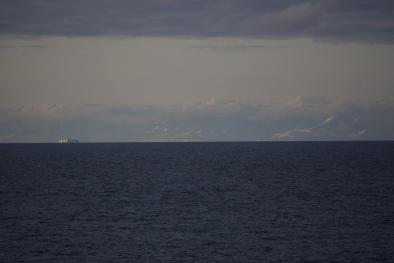Current Atlantic Meridional Overturning Circulation weakest in last millennium
Study key findings & significance
- The slowdown of the Atlantic Meridional Overturning Circulation (AMOC), also known as the Gulf Stream System, in the 20th century is unprecedented in the past millennium, and it is likely linked to human-caused climate change.
- The AMOC has been weaker in recent decades than at least the past 1000 years.
- The researchers compiled proxy data – taken mainly from natural archives like ocean sediments or ice cores – reaching back many hundreds of years to reconstruct the flow history of the AMOC.
- Previous studies showed a slowdown of the ocean current of about 15 percent since the mid-20th century, linking this to human-caused global warming, but a robust picture about its long-term development was missing: This is what the researchers provide with their review of results of proxy data studies.
- Already the 2019 special report on the oceans of the Intergovernmental Panel on Climate Change (IPCC) concluded with medium confidence ‘that the Atlantic Meridional Overturning Circulation (AMOC) has weakened relative to 1850–1900.’ The new study provides further independent evidence for this conclusion and puts it into a longer-term paleoclimatic context.
Author quotes
Previous studies by Rahmstorf and colleagues showed a slowdown of the ocean current of about 15 percent since the mid-20th century, linking this to human-caused global warming, but a robust picture about its long-term development has up to now been missing: This is what the researchers provide with their review of results of proxy data studies.
Stefan Rahmstorf, Potsdam Institute for Climate Impact Research PIK, co-author and initiator of the study
For the first time, we have combined a range of previous studies and found they provide a consistent picture of the AMOC evolution over the past 1600 years. The study results suggest that it has been relatively stable until the late 19th century. With the end of the little ice age in about 1850, the ocean currents began to decline, with a second, more drastic decline following since the mid-20th century.
Stefan Rahmstorf, Potsdam Institute for Climate Impact Research PIK, co-author and initiator of the study
Abstract
The Atlantic Meridional Overturning Circulation (AMOC)—one of Earth’s major ocean circulation systems—redistributes heat on our planet and has a major impact on climate. Here, we compare a variety of published proxy records to reconstruct the evolution of the AMOC since about AD 400. A fairly consistent picture of the AMOC emerges: after a long and relatively stable period, there was an initial weakening starting in the nineteenth century, followed by a second, more rapid, decline in the mid-twentieth century, leading to the weakest state of the AMOC occurring in recent decades.
Related Content



